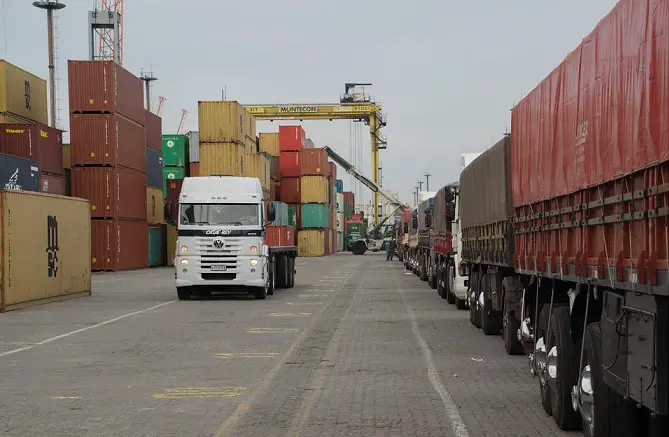California has an ambitious plan to force its trucking fleet to transition to all electric vehicles by 2035. However many are saying the move may be hampered by a lack of infrastructure, such as charging stations, and that may significantly disrupt shipping and affect the ability of California ports to handle the traffic they need to handle to keep America supplied.
The California Air Resources Board is seeking to phase out fossil fuel powered big rigs for use shuttling shipping containers between ports, rail yards, and warehouses. It wants to require all new vehicles be powered by clean fuels beginning in 2024. By 2025 it wants to ban all internal combustion engine trucks which have 800,000 miles or more on them from operating in rail yards and ports.
The ultimate goal is to force all 30,000 trucks used at its shipping facilities to be transitioned to clean energy by 2035.
The problem is California does not have the infrastructure, including charging stations, to facilitate this switch, and building that infrastructure promises to be expensive. Estimates are the state will need 157,000 chargers by 2030, in order to support charging the medium and heavy-duty vehicles used in California’s shipping operations. Industry experts note that infrastructure is non-existent today, and it will take years to build out.
Matt Schrap, chief executive of advocacy group the Harbor Trucking Association, which represents the interests of the state’s port truckers, “Nobody is saying we don’t want to move to advanced technology.” He notes they cannot meet the state’s deadlines “because there’s no charging.”
Already, CARB, the state’s main regulatory body for air quality, has banned the sale of new gasoline powered cars by 2035. It has also implemented rules designed to drive truck dealers to ensure zero-emission vehicles make up an increasing percentage of their sales.
The state regulatory board is scheduled to hold a vote on the new rules affecting truckers next spring.
Tony Brasil, who specializes in clean-energy trucking at CARB, says the problem is a lot like the chicken and the egg – Truckers will not transition to electric big rigs if there is no charging, but they cannot get charging built if there are no truckers using electric vehicles.
For their part, Truckers oppose the move for various reasons. For starters, electric trucks tend to cost two to three times as much as regular big rigs, which retail for about $150,000. In addition, electric trucks only have a range of 100-200 miles between charges, which makes any longer routes impractical.
Aaron Brown, senior vice president of port services for logistics and trucking operator NFI Industries, noted his Camden, NJ based firm is introducing roughly 90 electric trucks to its southern California operations next year, but the cost has not been insignificant, especially as his company has had to install dozens of chargers over three different depots close to ports and warehouses.
He said, “We are counting on the shipper community to pay significantly elevated prices to support the higher equipment costs.”
Of the 157,000 charging stations the state estimates it will need, state officials say they have already installed 200 stations. In addition, the California Public Utilities Commission adopted a $1 billion program to electrify the transportation industry, which will spend $700 million over five years on building out the charging infrastructure.


